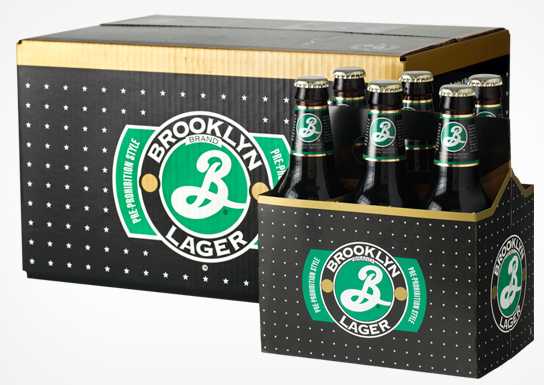So, your family says that you make the best salsa and is encouraging you to sell it, but you don’t have the capital to build a commercial facility, hire workers, and set up a distribution network. Why not consider a co-packer?
In entrepreneurship, the journey from concept to market can be daunting, especially for those with limited resources and expertise. Many aspiring entrepreneurs find themselves in a predicament: they have a brilliant product idea, but lack the capital, manufacturing know-how, and distribution network to bring it to fruition. In such situations, the conventional route of building one’s manufacturing plant may seem insurmountable. However, there exists a viable alternative that holds tremendous promise: partnering with a co-packer.
I first learned about co-packers, also known as co-bottlers, contract manufacturing, and contract packagers, in 2006 while vacationing in the Adirondack mountains. Looking for something to do indoors on a particularly rainy day, we decided to do a factory tour of the West End Brewery in Utica, NY. The brewery, known for its Saranac line of beer, opened in 1853 and is the second oldest family-owned brewery in the US.
As I watched one of the lines spit out beer bottles, I noticed they were producing a beer with the label Brooklyn Brewery. I was pretty confused and asked our tour guide about it. I learned that West End Brewery was a co-bottler and produced craft beer for clients on contract.
Co-packers are specialized firms that provide manufacturing and packaging services for other companies, as with Brooklyn Brewery. These entities are equipped with the infrastructure, expertise, and resources necessary to produce a wide array of products across various industries. By leveraging the capabilities of co-packers, entrepreneurs can sidestep the burdensome tasks of setting up their manufacturing facilities and managing intricate production processes.
One of the most compelling advantages of partnering with a co-packer is the preservation and utilization of intellectual capital. Your most valuable asset as an entrepreneur lies in your innovative ideas, unique formulations, and market insights. By collaborating with a co-packer, you retain intellectual property ownership while entrusting execution to seasoned professionals. This strategic alignment allows you to focus on refining your product concept, enhancing its value proposition, and nurturing customer relationships.
In the absence of substantial capital and manufacturing expertise, attempting to establish an in-house production facility can be a prohibitively expensive and risky endeavor. Building and operating a manufacturing plant entails significant upfront investments in infrastructure, equipment, labor, and regulatory compliance. Moreover, navigating the complexities of production processes, quality control, and scalability requires specialized knowledge and experience that eludes most entrepreneurs.
By partnering with a co-packer, entrepreneurs gain access to state-of-the-art manufacturing facilities, advanced technologies, and skilled personnel without bearing the burdensome costs and risks associated with ownership. Co-packers offer flexible production capacities, allowing entrepreneurs to scale their operations seamlessly in response to market demand. Furthermore, co-packers bring a wealth of industry insights and best practices to the table, ensuring that products are manufactured efficiently, cost-effectively, and in compliance with regulatory standards.
In addition to manufacturing, some co-packers often provide distribution services, further amplifying their value proposition. Establishing an effective distribution network is paramount for reaching target markets, generating sales, and fostering brand awareness. However, building and managing distribution channels requires substantial investment in warehousing, logistics, transportation, and inventory management.
By leveraging the distribution capabilities of co-packers, entrepreneurs can overcome these logistical challenges and accelerate their market penetration. Co-packers can offer end-to-end distribution solutions, including warehousing, order fulfillment, and logistics management. By tapping into the existing co-packer distribution networks, entrepreneurs can efficiently deliver their products to retailers, wholesalers, and consumers, thereby minimizing time-to-market and maximizing revenue potential.
Co-packers cater to a diverse range of industries and offer production capabilities for various product categories, including but not limited to:
- Food and Beverage: Co-packers specialize in manufacturing and packaging food products such as snacks, beverages, sauces, condiments, and baked goods.
- Health and Beauty: Co-packers provide services for producing cosmetics, skincare products, personal care items, and toiletries.
- Pharmaceuticals: Co-packers offer manufacturing solutions for pharmaceutical products, including pills, tablets, capsules, and creams.
- Household Products: Co-packers handle packaging for household items such as cleaning products, detergents, and air fresheners.
- Pet Care: Co-packers assist in packaging pet food, treats, grooming products, and accessories.
- Nutraceuticals: Co-packers specialize in manufacturing dietary supplements, vitamins, and other nutraceutical products.
- Industrial Products: Co-packers support manufacturers of industrial products by providing packaging solutions for lubricants, adhesives, chemicals, and automotive fluids.
Moreover, it is always advisable to start small to see how the market responds to your product. Here is where co-packers shine again. Scaling a product from small-scale to full-scale production with the assistance of a co-packer involves a strategic transition, starting with market testing and validation of demand through limited production runs. As demand increases, the co-packer optimizes manufacturing processes, secures a reliable supply chain, and invests in infrastructure to accommodate your growth. The co-packer standardizes quality control to ensure product integrity while distribution channels are expanded efficiently. The co-packer also assists in monitoring cash flow, building a skilled team, staying adaptable to market dynamics, and facilitating sustainable growth. By leveraging the expertise and resources of a co-packer, entrepreneurs can effectively scale production and maximize the potential of their successful products.
In conclusion, leveraging a co-packer’s capabilities is a strategic imperative for product entrepreneurs with limited resources and expertise. By partnering with co-packers, entrepreneurs can unlock access to world-class manufacturing facilities, tap into established distribution networks, and focus on nurturing their intellectual capital. This collaborative approach not only mitigates risks and reduces costs but also accelerates time-to-market and enhances competitiveness in today’s dynamic business landscape. As you embark on your entrepreneurial journey, consider the transformative potential of co-packers in turning your vision into reality.
Could you use the services of a co-packer to bring your product to market?












